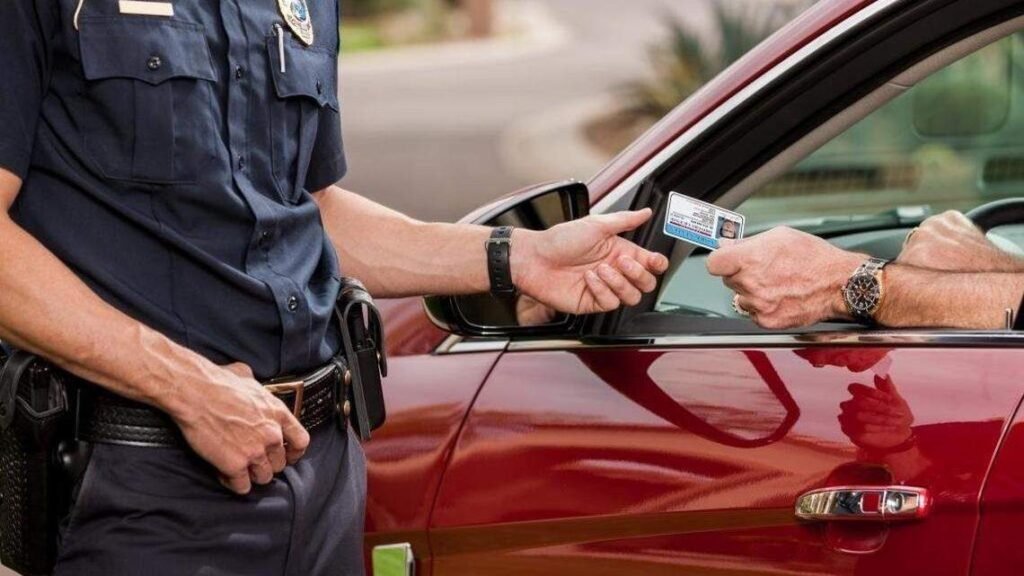
Many people believe that if a police officer tells you to stop and asks for your identification, you must always comply. While this is true in some states, Michigan laws works differently.
Michigan is one of the many states that has not adopted a “stop and identify” law. This means there are only limited circumstances where you are legally required to show ID to law enforcement.
Under Michigan law, if you are not driving a vehicle, you are not required to show ID when asked by police, unless there is reasonable suspicion you committed a crime. Simply being a passenger in a car, walking, or riding a bike does not create a legal obligation to provide identification.
You must show identification if you are behind the wheel of a vehicle or if you are being lawfully arrested.
A minor civil infraction as a pedestrian, like not having a bicycle light at night or crossing against a pedestrian signal—should not lead to an arrest in Michigan. This protection comes from the Fourth Amendment of the United States Constitution, which safeguards against unreasonable searches and seizures. If an officer stops you for a civil infraction, their authority is limited.
As of 2023, 24 states have stop-and-identify statutes. Those statues vary depending on what the state has implemented. Michigan is not one of them.
Obstruction Charges
Police sometimes arrest individuals for “obstruction” when they refuse to show ID. But under Michigan law, you should not be arrested just for refusing to show ID, unless you are driving or there is reasonable suspicion of a crime.
As a passenger in a car, refusing to show ID is not obstruction unless there is clear evidence of a crime. If you are lawfully detained and refuse to identify yourself where stop-and-identify laws apply, that can lead to an obstruction charge—but Michigan does not have such a law for general stops.
Sometimes this may result in double-edged sword. In many instances, even if a pedestrian doesn’t show identification and is within their legal right to do so, it often leads to escalation of tension between the police and the individuals being questioned or even arrested.
Cases that Impacted the Laws
There have been several key cases in the U.S. Supreme Court that attempted to clarify or rectify an officer’s jurisdiction during traffic and pedestrian stops. The main takeaways include;
- In 1968, U.S. Supreme Court in Terry v. Ohio ruled that a frisk is only allowed if the officer reasonably believes the person is armed and dangerous. Suspicion alone is not enough.
- In 1999, the court in People v. Williams required police to point to specific facts justifying a frisk. Being stopped for a traffic or civil violation does not automatically allow a search in Michigan.
- In 2004, U.S. Supreme Court in Hiibel v. Sixth Judicial District upheld that states may pass stop-and-identify laws, but that stops must be lawful.
- And more recently in 2017 in People v. Frederick, it was reinforced that Michigan officers must have statutory authority before extending a stop or demanding ID.
Where Undocumented Immigrants Fall
In Michigan, you cannot be arrested solely on the suspicion of being an undocumented immigrant if you are a passenger or a pedestrian on the street. Immigration violations are a matter of federal laws, leaving it out of jurisdiction for local and state police to enforce it.
An undocumented immigrant may be arrested for violating a state or local law. It is only after that when immigration enforcement may be involved. Oftentimes, local law enforcement ask for identification of undocumented individuals. When the individual fails to provide identification, local and state police departments can then alert immigration officers about the suspect’s immigration status. Local police can hold you based on an immigration detainer request.
Why Knowing Your Rights Matters
If police violate any of the above rules, evidence collected may be thrown out in court. Michigan courts consistently limit police authority when it conflicts with constitutional rights. The best place to challenge an unlawful stop is in court, not at the scene. If an individuals find themselves in this situation it is important that they remain calm, choose to remain silent and consult with an experienced criminal defense and immigration attorney.
The Bottom Line on Michigan Stop and Identify Laws
- Michigan does not have a stop-and-identify statute.
- You need to show ID if you are driving or lawfully arrested.
- Courts in Michigan have upheld strong protections for individual rights under the Fourth Amendment.
If you or a family member need information regarding a specific case or the assistance of experienced attorneys fighting for people like you every day, call our 24/7 English-Spanish line at 248.951.2450 or reach out to us at Atiya Law.
